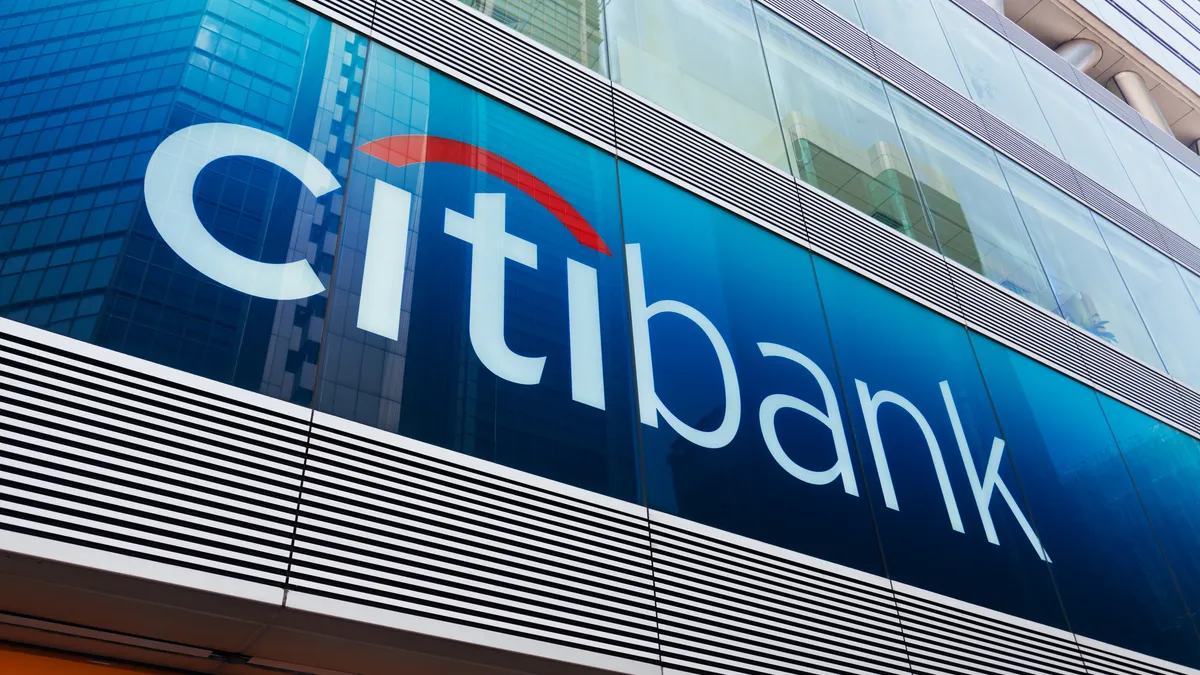Dive Brief:
- Citi will eliminate overdraft, returned item and overdraft protection fees by this summer, the bank said Thursday in a press release.
- Ranking third in the U.S. in assets, it becomes the largest bank in the country to jettison the fees. Capital One abolished the charges in December, and Ally Bank eliminated them six months earlier.
- “This latest enhancement is a significant step for Citi as a leader in the banking industry offering the most consumer-friendly overdraft practices,” said Gonzalo Luchetti, CEO of U.S. personal banking at Citi, said in the press release. “We are continuously looking for ways to utilize our industry-leading capabilities to make the financial system easier and more equitable for communities who have little or no financial buffer.”
Dive Insight:
Though 2022 is young, it has already seen a litany of changes to banks' overdraft policies — a continuation of a trend that accelerated last year. With Thursday's announcement, however, Citi joins the small coterie of lenders that have opted to kill the controversial fees rather than blunt them.
Bank of America and Wells Fargo — Citi's nearest competitors in size — took steps in January to reduce their reliance on the fees. BofA said it would cut the amount it would charge when customers overdraw from $35 to $10 beginning in May, and announced plans to eliminate non-sufficient funds (NSF) fees and some transfer fees.
On the same day, Wells Fargo said it would eliminate NSF and transfer fees for some customers, and implement a grace period that gives customers who overdraw 24 hours to put sufficient funds in their accounts.
M&T Bank, meanwhile, said it would reduce its overdraft fee from $36 to $15 beginning in the second quarter, and plans to eliminate NSF fees.
TD Bank — which derived 8.9% of its operating revenue from deposit service charges between June 2020 and 2021, according to S&P Global research — announced Feb. 1 it would allow customers to overdraw up to $50 without incurring a fee. The Toronto-based lender also unveiled a 24-hour grace period.
U.S. Bank in January eliminated certain fees for non-sufficient funds and planned, by June, to increase — to $50 from $5 — the amount an account can be overdrawn before a fee is charged.
Truist said it would unveil two new personal checking accounts without overdraft fees over the summer. The bank also plans to discontinue returned-item, negative account balance and overdraft protection transfer fees for all existing personal accounts in the coming months, it said.
A renewed focus on overdraft fees took hold in May 2021, when Sen. Elizabeth Warren, D-MA, took CEOs of the U.S.'s six largest banks to task in a line of questioning during a hearing on Capitol Hill.
Regulators have followed suit. The Consumer Financial Protection Bureau (CFPB) estimated in December that the banking industry made $15.47 billion in revenue from charging overdraft and non-sufficient funds fees in 2019.
“Rather than competing on quality service and attractive interest rates, many banks have become hooked on overdraft fees to feed their profit model,” said the bureau's director, Rohit Chopra.














